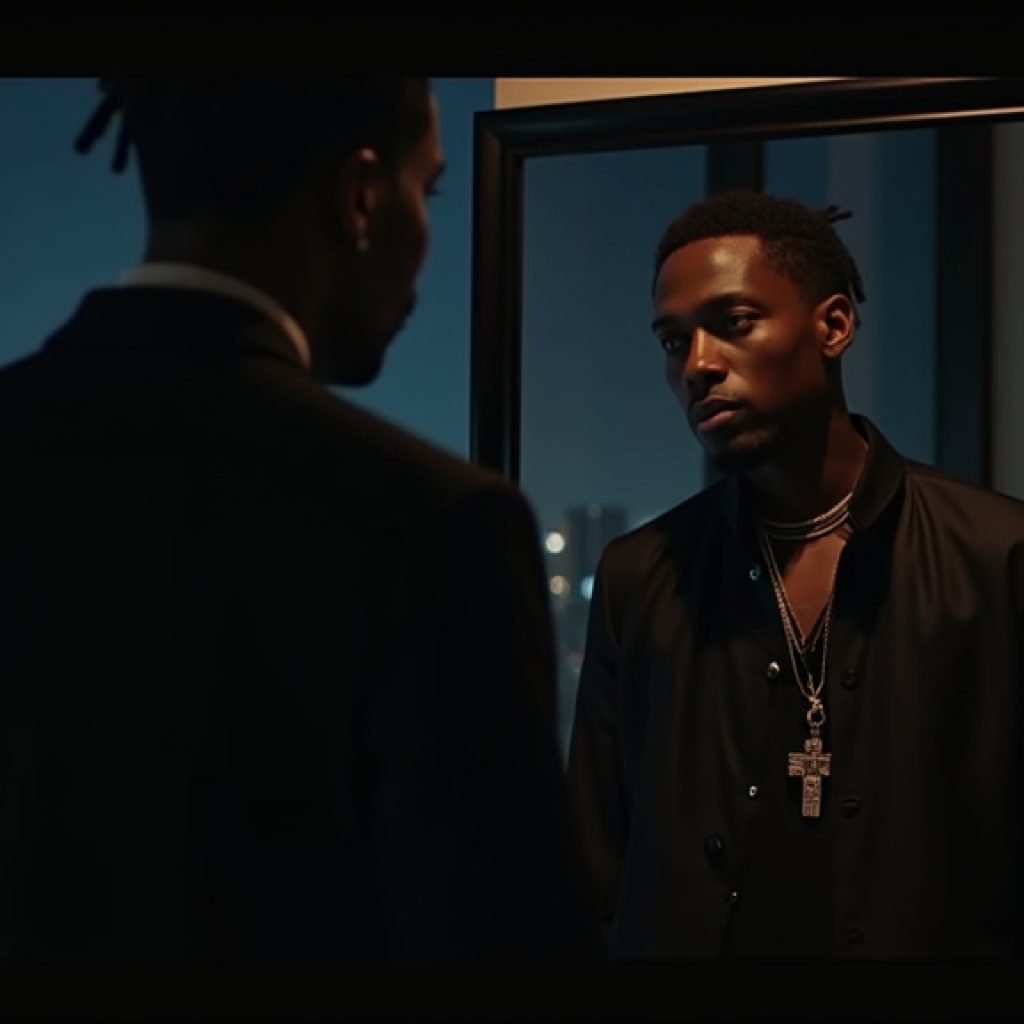Veteran rapper Fat Joe has openly admitted to a complex internal struggle regarding the music of Gunna, specifically his latest album, “The Last Wun.” While Joe confessed that the critically acclaimed project has been “on repeat” for him, he finds himself unable to fully endorse the Atlanta artist due to perceived “disloyalty” within the hip-hop community. This nuanced stance was shared on the “Joe and Jada with Jadakiss” podcast, highlighting a persistent tension between artistic appreciation and adherence to certain codes of conduct in the rap world.
Gunna’s “The Last Wun” Dominates Charts Amidst Controversy
Gunna’s “The Last Wun,” released in August 2025, has achieved significant commercial success, debuting at number one on Billboard’s Top R&B/Hip-Hop Albums chart and number three on the all-genre Billboard 200. The album garnered approximately 80,000 equivalent album units in its first week, largely driven by streaming, and has seen sixteen of its tracks chart on the Hot R&B/Hip-Hop Songs list. This chart dominance underscores Gunna’s continued influence and popularity, even as his career has been shadowed by legal entanglements. The project also marks his final album under the YSL Records umbrella.
The Shadow of the YSL RICO Case
The core of Fat Joe’s reservation stems from Gunna’s involvement in the high-profile Young Slime Life (YSL) RICO case. In December 2022, Gunna, whose legal name is Sergio Kitchens, entered into a negotiated plea deal, accepting an Alford plea to a single count of conspiracy to violate the Racketeer Influenced and Corrupt Organizations (RICO) Act. An Alford plea allows a defendant to plead guilty while maintaining their innocence, acknowledging that the evidence presented would likely lead to a conviction. As part of the deal, Gunna received a sentence of five years, with one year commuted to time served and the remainder suspended, contingent on completing 500 hours of community service and avoiding contact with co-defendants. Crucially, Gunna stated in a released statement that he had “NOT made any statements, have NOT been interviewed, have NOT cooperated, have NOT agreed to testify or be a witness for or against any party in the case and have absolutely NO intention of being involved in the trial process in any way.” He emphasized his affiliation with YSL was for “entertainment – rap artists who wrote and performed music that exaggerated and ‘glorified’ urban life.”
Hip-Hop’s Unwritten Code of Loyalty
Within hip-hop culture, a strong emphasis has historically been placed on loyalty and a distrust of cooperating with authorities, often leading to artists being labeled “rats” or “snitches.” This deeply ingrained code can significantly impact an artist’s perception and standing within the community. Fat Joe himself referenced a past personal experience where a friend’s betrayal led to a difficult confrontation, an event that he says “marked him for life” and solidified his stance against disloyalty. This personal history informs his current difficulty in fully embracing Gunna’s music, despite its undeniable quality.
The Artist’s Dilemma: Enjoying Art vs. Supporting the Artist
Fat Joe articulated his quandary on the podcast, explaining that while he can appreciate Gunna’s musical output, his personal principles prohibit him from “co-signing” an artist perceived to have violated the street code. He acknowledged the contradiction pointed out by his co-host Jadakiss: enjoying the art made by someone he wouldn’t publicly back. Joe’s response was firm; he separates the music itself from his personal judgment of the artist’s actions. “Betrayal carries no second chances,” Joe stated, underscoring his unwavering position on loyalty.
Artistry vs. Ethics: An Ongoing Debate
This situation reflects a recurring and often contentious debate within the hip-hop sphere: the extent to which listeners should or can separate the art from the artist. Gunna’s “The Last Wun” is a testament to his talent, offering what critics describe as ambient luxury music with slick flows and moody beats. However, the controversy surrounding his plea deal raises ethical questions for many fans and figures within the culture. While some, like Charlamagne Tha God, have suggested that mainstream audiences may care less about these legal implications and more about the music itself – asserting that “a bop is a bop” regardless of the artist’s background – others, like Fat Joe, adhere to a stricter code where personal conduct directly influences their support for an artist’s work.
Navigating the Complexities of Modern Hip-Hop
Fat Joe’s comments reveal the intricate landscape of contemporary hip-hop, where immense artistic talent coexists with complex legal issues and deeply entrenched cultural values. His struggle highlights the difficulty in maintaining a personal moral compass when confronted with compelling music created by an artist whose actions are perceived to contradict the foundational tenets of loyalty within the hip-hop narrative. Ultimately, Fat Joe’s position—enjoying the music but withholding public endorsement—speaks to the ongoing, often challenging, conversations about integrity, art, and community in the ever-evolving stories of hop-hop.
























